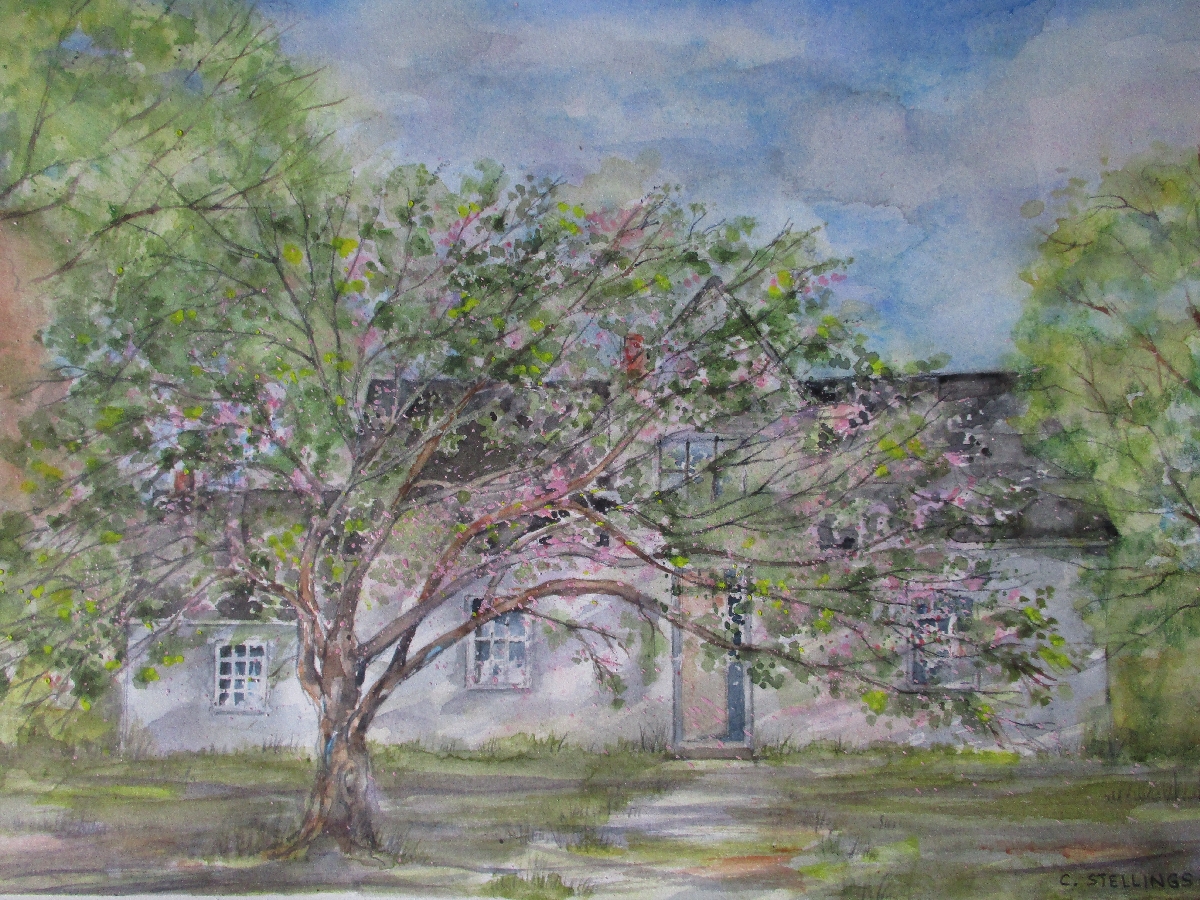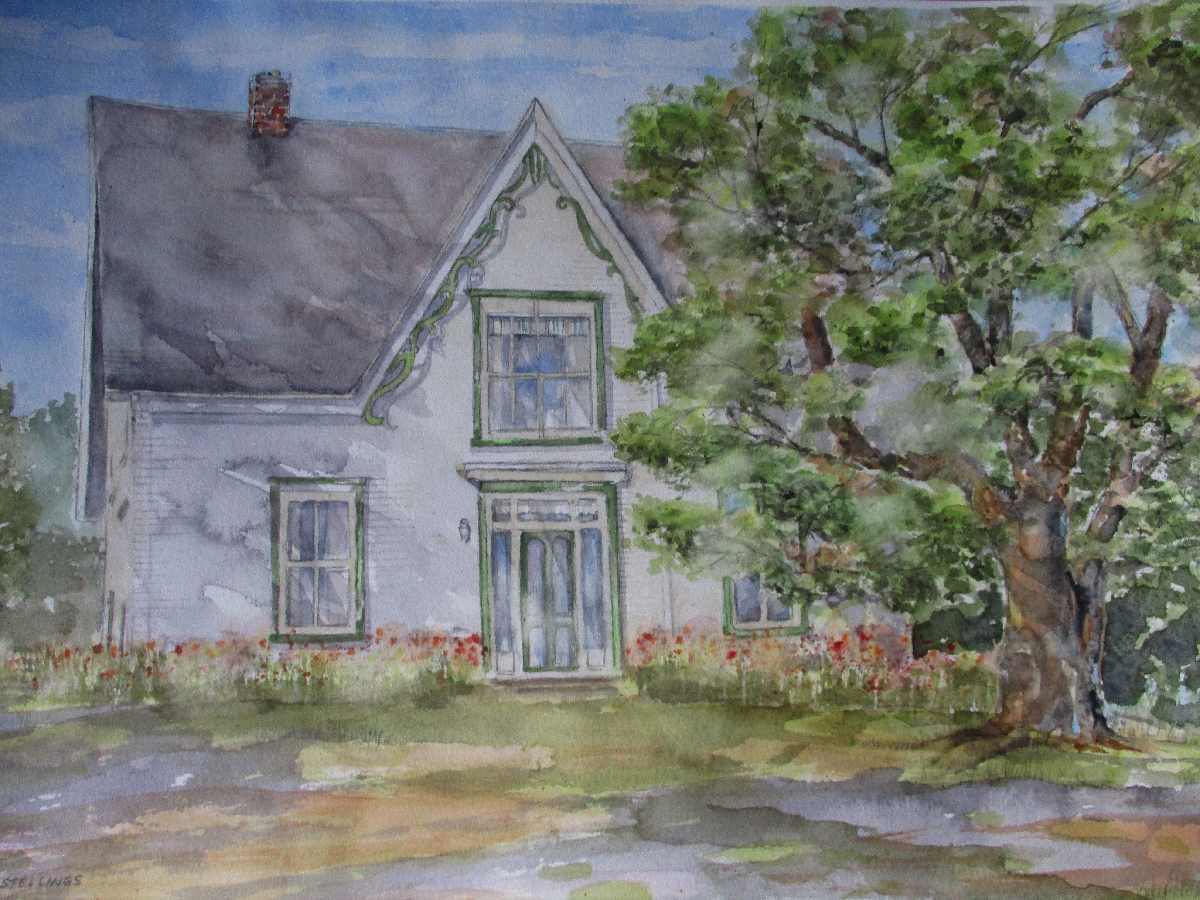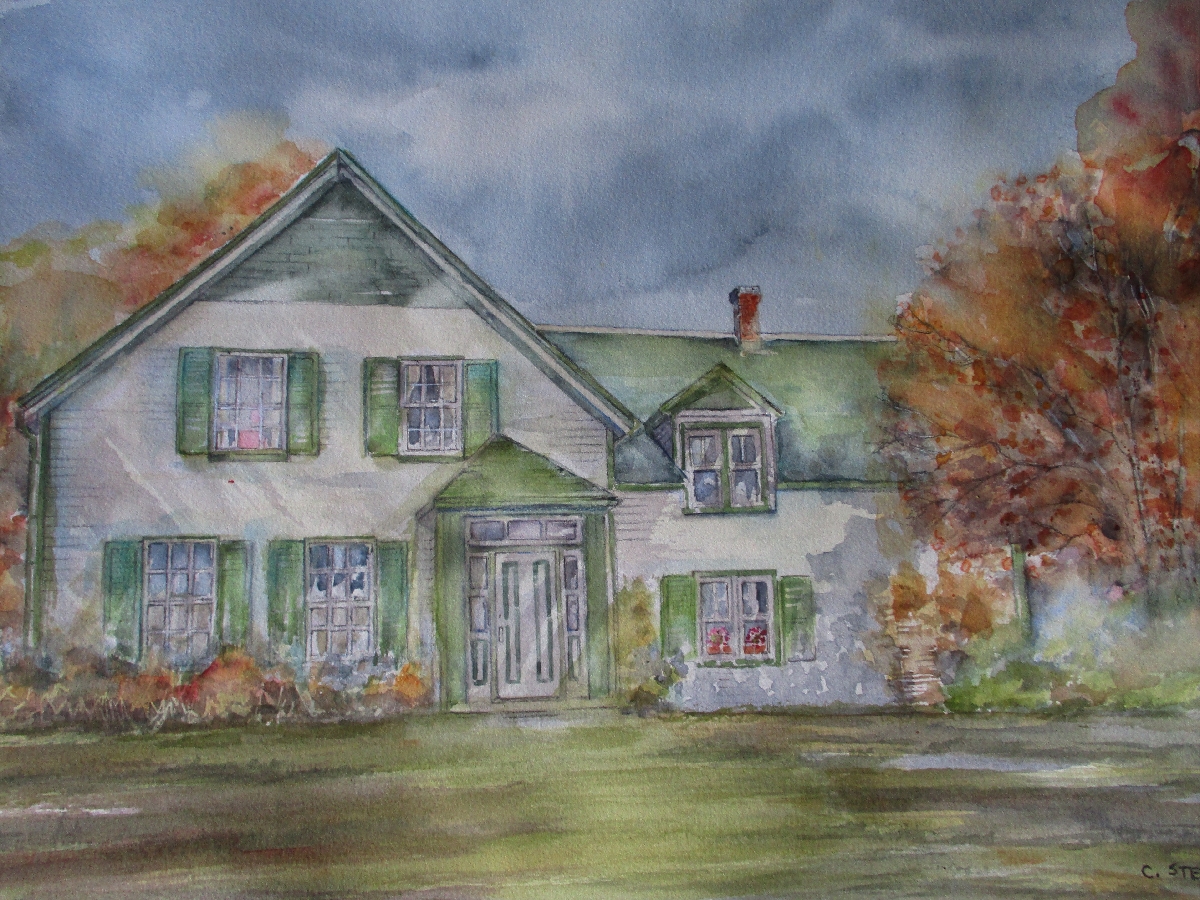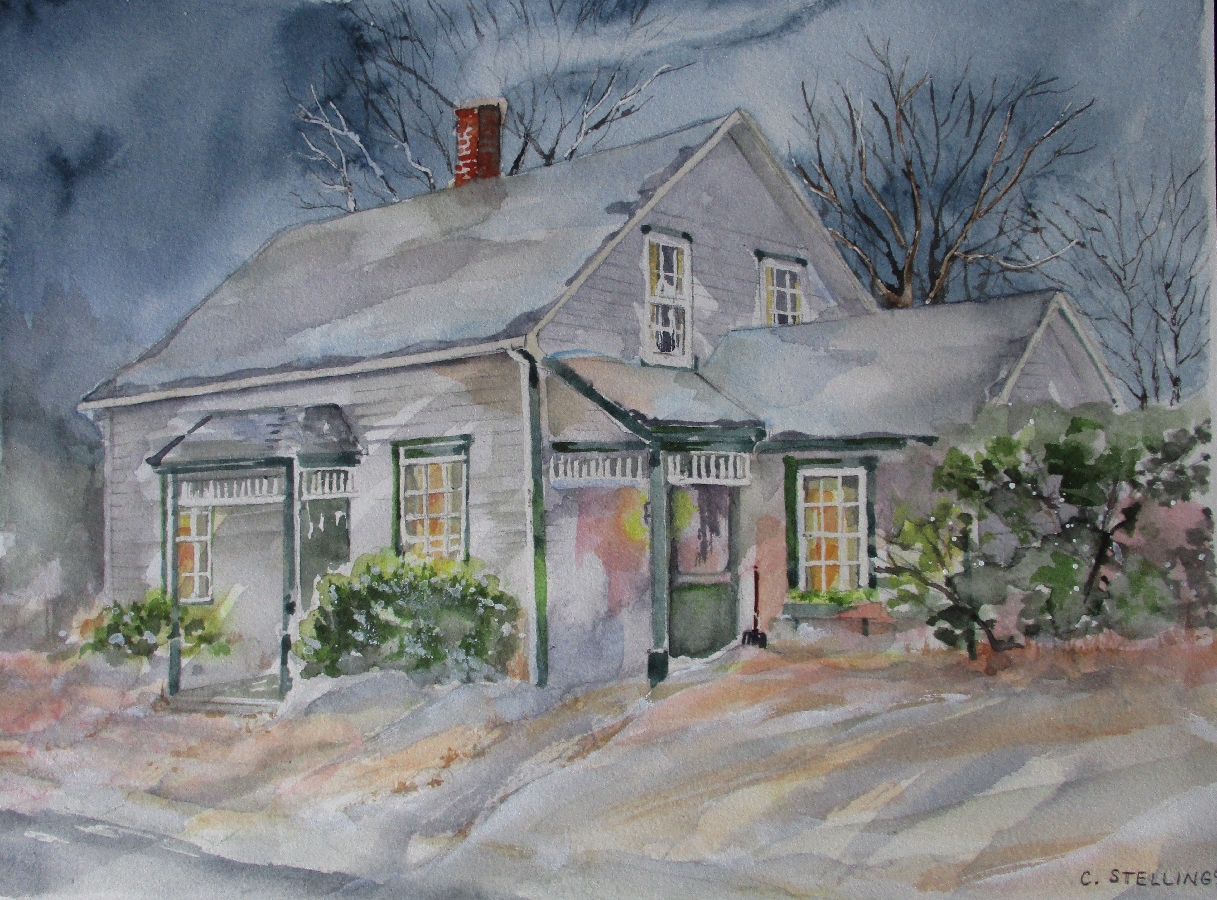Although L.M. Montgomery’s poems remain her least recognized contribution to literature, they reveal a deep attachment not only to the natural world but also the places in her life. Inspired by her verse, I have painted four of these beloved settings.
I have always felt that L.M. Montgomery wrote poetry in the same way landscape painters create their works of art. Her landscapes and seascapes, although crafted with words instead of a brush, elicit the same emotional response as the great romantic British artists, like John Constable and J.M.W. Turner. Montgomery’s use of colour is just one way that she “paints” a scene—her pastures are golden; her twilights are purple. Her descriptions of the changing seasons, trees and woods, and storms at sea reverberate with energy and life. She herself admitted that, even more than novels, writing poetry gave her the most creative satisfaction.1 For this reason, I have taken phrases from her poetry as titles for four watercolours, one for each season of the year.
But it was not just her painterly poems that inspired these pictures. It was something I read in Mary Henley Rubio’s biography, The Gift of Wings. Rubio explains how deeply attached Montgomery was to houses, and she tells us about the pain the author felt when her uncle John Macneill demolished the homestead in which she had lived for over half her life. As I drew this long-gone place, I imagined young Maud growing up there and adult Maud writing Anne by candlelight, and I thought about the sadness she experienced when her beloved old apple tree was cut down.2 It felt right somehow to paint that tree back into existence, and spring was the obvious season in which to set the scene. The result is Apple-blossoms of Rose and Snow: The Macneill Homestead, the title extracted from her poem “Apple Blossoms.”

When Summer Days Were Sweet and Long: Silver Bush was my choice for summer. Rubio tells us how Maud loved visiting her “merry” Campbell cousins at their “boisterous” home in Park Corner.3 Not only was she married there in July of 1911 but it is also where she spent many of her sunniest days. The title is a phrase from my favourite of her poems, “The Gable Window.”

Green Gables, as we learn in Montgomery’s memorable novel, was most beautiful in autumn, and Anne herself loved the changing colours of the season. Who could forget her remark to Marilla, with her arms full of boughs: “I’m so glad I live in a world where there are Octobers”?4 While I painted The Fallen Leaves Are Whispering: Green Gables, I thought of Anne’s exuberance and Maud’s lovely poem “When Autumn Comes.”

When it came to painting Montgomery’s birthplace, winter was the season that best expressed my feelings for the little house in Clifton (now New London). Although technically Maud was born in late autumn, the last day of November is usually a wintry one in Prince Edward Island, and the way to illustrate an atmosphere of warmth—which is how I feel about her birthplace—is to show the light from windows being cast onto the snow. The title Homestead Lights with Friendly Glow: Birthplace of Maud Montgomery is from her poem “A Winter Day.”

It was a pleasure to paint these four scenes from Montgomery’s life, and, going forward, I know I will be further inspired by her poetry, the creative work she loved most.
About the Author: Caroline Stellings is an award-winning author and illustrator of numerous books for children and young adults, including the highly acclaimed middle-grade novel, The Contest (Second Story Press), about a Mohawk girl from Hamilton, Ontario, who sets out to win an Anne of Green Gables look-alike contest. She is a professional artist whose works in pastel and watercolour have been exhibited in shows across the country. Her illustrations from the bestselling The Malagawatch Mice and the Church That Sailed were acquired by the Highland Village Museum in Cape Breton. She lives in Waterdown, Ontario, and makes frequent trips to Norval and Leaskdale, just to stand outside the places where Montgomery once lived.
Banner Image: Caroline Stellings. The Road to Cavendish. Collection of the artist, 2022.
Works Cited
Montgomery, L.M. Anne of Green Gables. 1908. Ryerson Press, 1942.
---. L.M. Montgomery’s Complete Journals: The Ontario Years, 1911–1933. Edited by Jen Rubio, Rock’s Mills P, 2016–2019. 5 vols.
---. The Poetry of Lucy Maud Montgomery. Selected by John Ferns and Kevin McCabe. Fitzhenry and Whiteside, 1987.
---. The Watchman and Other Poems. McClelland, Goodchild, and Stewart, 1916.
Rubio, Mary Henley. Lucy Maud Montgomery: The Gift of Wings. Doubleday, 2008.
